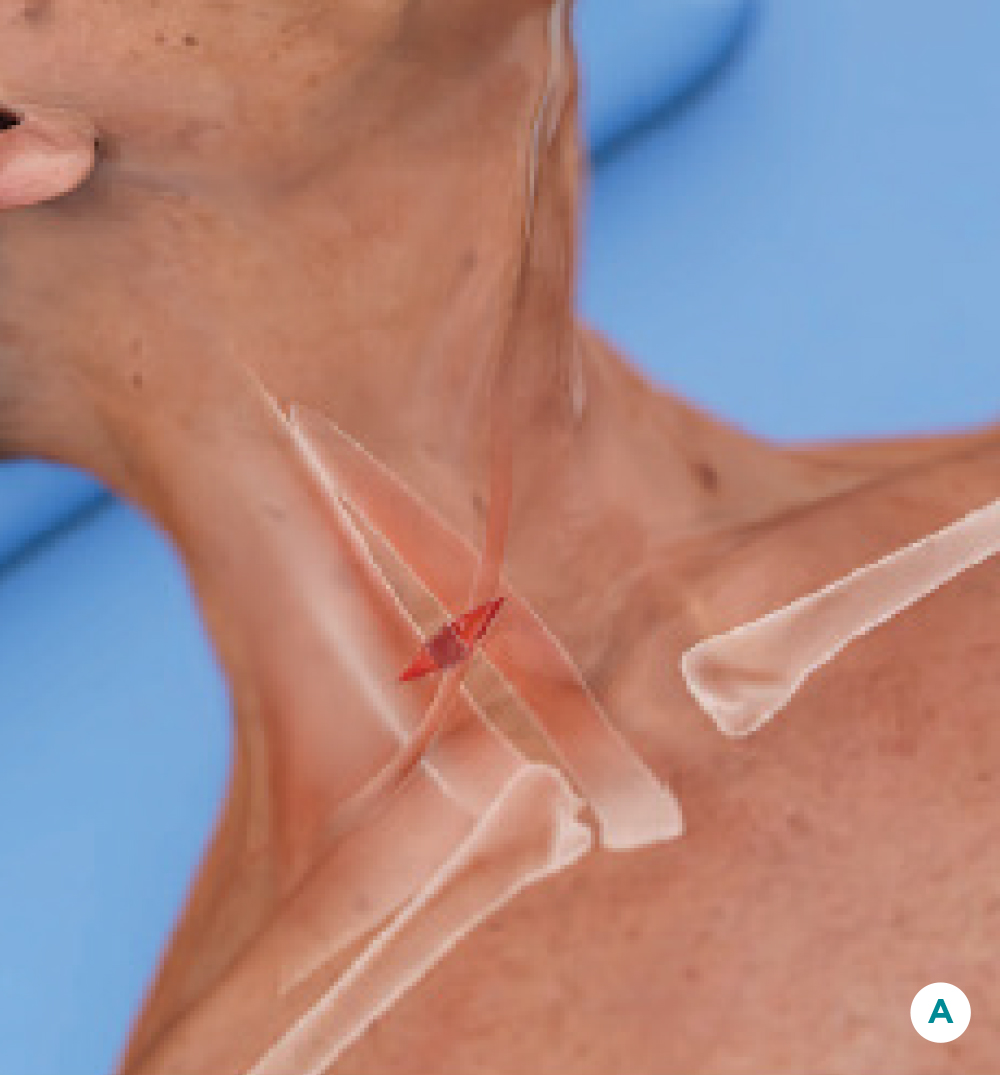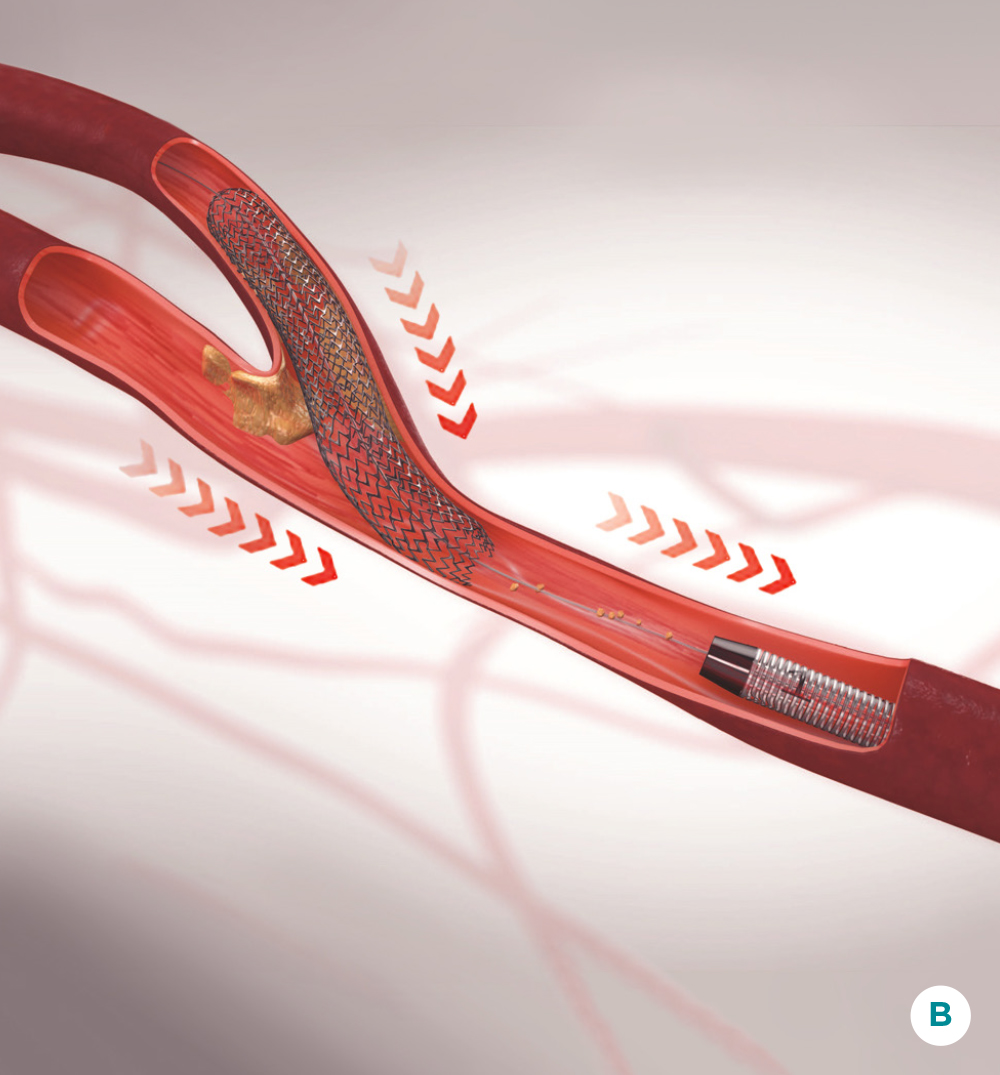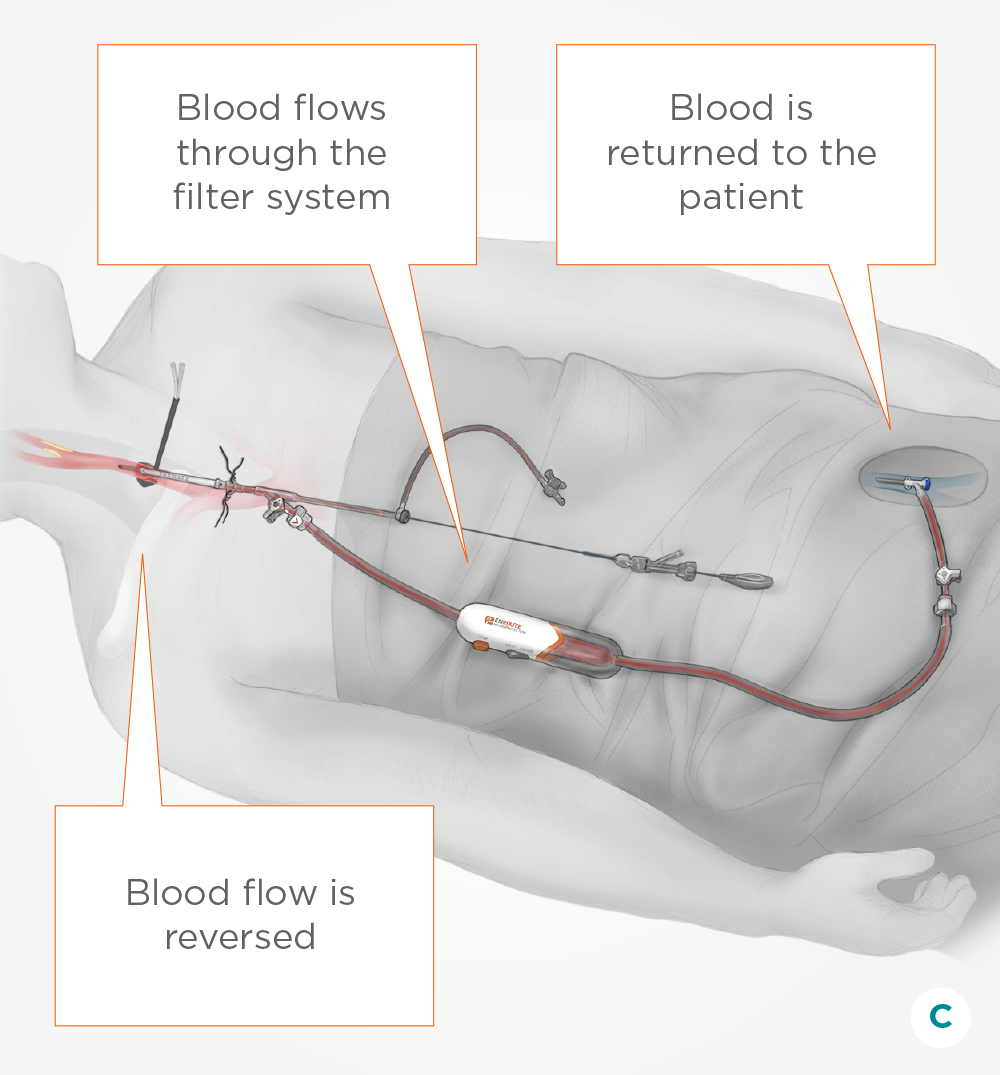TransCarotid Artery Revascularization (TCAR)
A minimally invasive option to treat carotid artery disease
Protection against Stroke
For patients that require surgery to address their carotid artery disease, one of the first things to consider is the impact that surgery might have on the patient, the patient’s body and, importantly, the patient’s brain. While any repair of the carotid artery carries some risk of stroke caused by the repair itself, Silk Road Medical has developed a procedure that carries the same low stroke rate as the traditional surgical option with a less invasive approach that reduces the risk of heart attack, nerve injury and reduces the time required to perform the procedure and the amount of time the average patient needs to spend recovering in hospital.
Procedure Overview
Transcarotid Artery Revascularization (TCAR) is a clinically proven treatment option for carotid artery disease. The procedure begins with a small incision made just above the collarbone to allow access to the carotid artery (picture A). A sheath (a short hollow tube) is then placed in the carotid artery (picture B). To protect the brain from debris during the procedure, a circuit outside the body directs the blood flow away from the brain and safely back into a vein in the leg. This is called “reverse flow” (picture C) and allows your physician to place a stent (an expandable mesh tube) at the site of the disease for long-term plaque stabilization and stroke prevention.

Reverse Flow &
Neuroprotection System
TCAR is a patient friendly endovascular procedure that incorporates the neuroprotection principals of CEA. It utilizes a system that temporarily reverses blood flow away from the brain, collecting any potential debris in the device filter, before returning the blood to a vessel in the leg. With reverse flow neuroprotection established, a stent is then implanted in the lesion for long term plaque stabilization and stroke prevention. TCAR is well suited for patients who are higher risk of surgical complications due to age, medical co-morbidities, or anatomical issues.


